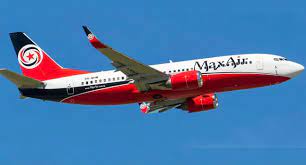The Nigerian Civil Aviation Authority (NCAA), says the Aviation sector in Nigeria has been put under threat four times in 2023 with incidents of contaminated Jet A1 fuel with water discovered from commercial aircraft tanks.
This is even as the NCAA engaged stakeholders as a means to getting to the root cause of the problem and finding solutions.
The Director General of NCAA, Capt. Musa Nuhu while speaking Thursday in Abuja hinted that though the Agency is a regulatory body, they can not solve the problem alone.
He said: “We can not solve this problem by ourselves. That is why we are involving all the stakeholders to get to the root cause of the problem and ensure that such incidents does not happen again.
“All what we are doing is for the traveling public, to boost confidence that as one board a plane, they are going to arrive their destination safely. “
Similarly, the Director Air-worthiness Standards of NCAA, Gbalohan Abalan said in the last incident, the aircraft tank was filled with water.
He noted: “Imagine what would have happened if the aircraft dictected the water in the air, the two engines would have shutdown and the aircraft would have dropped from the air like a stone.
“On the 17th of July 2023, an incident of multiple failure water test upon refueling a domestic airline occurred in Lagos.
“On 7th of July 2023, another incident of APU shutdown due to heavy water contamination occurred in Yola. Similarly, on 28th of April 2023, an incident of APU shutdown during engine start due to fuel contamination occurred in Abuja.”
Abalan added that on 30th of April 2023, an incident of inflight engine failure following fuel filter by pass occurred in Abuja, noting that in all the incidents, no accident was recorded.
On his part, the Chief Executive Officer (CEO) of the Nigerian Midstream Petroleum Regulatory Authority, Farouk Ahmed promised to work in collaboration with other stakeholders in ensuring that only quality aviation fuel is made available to the sector.
“We are ready to collaborate with all stakeholders to ensure that there is stability of the fuel and also to ensure that the product imported is of required quality, ” he said.















